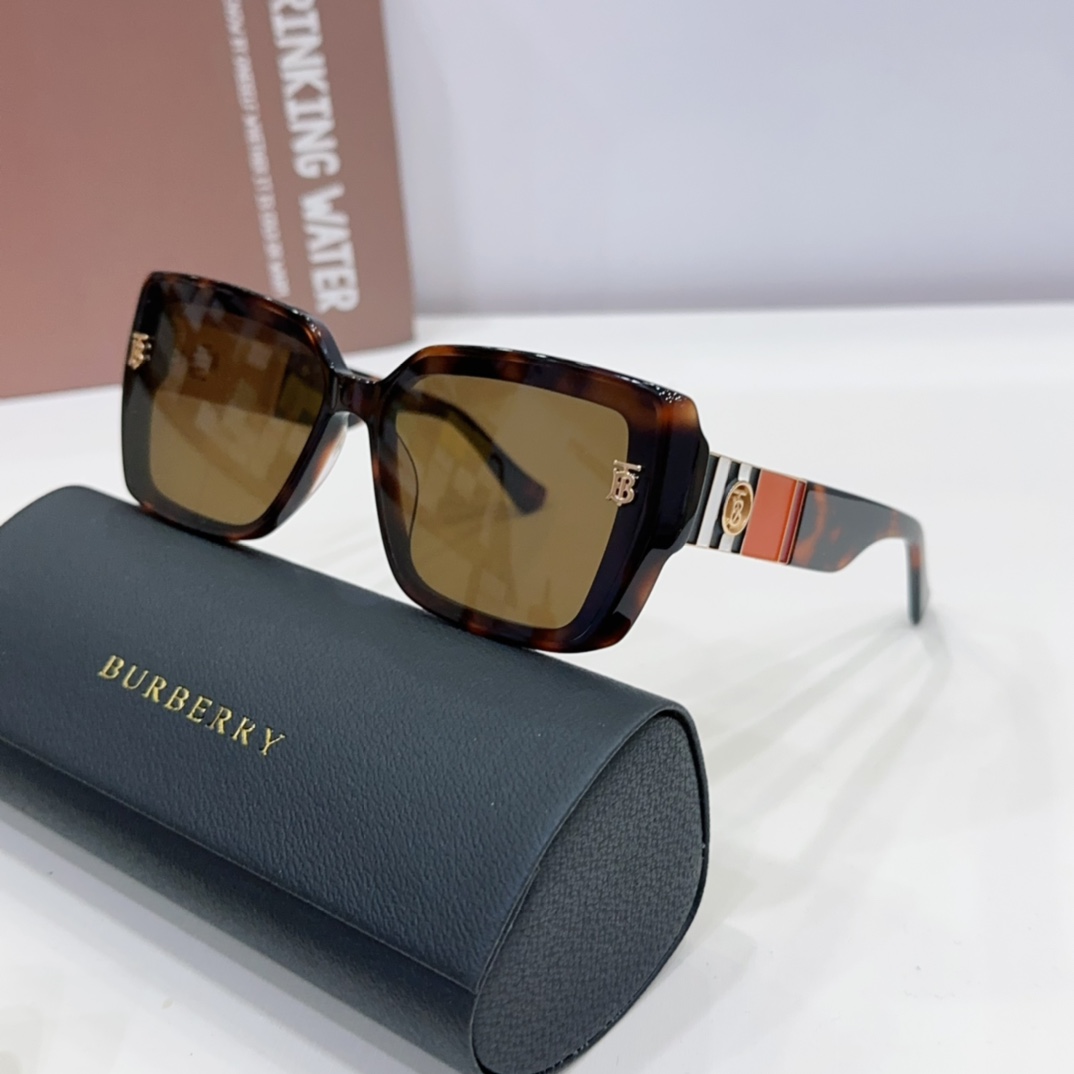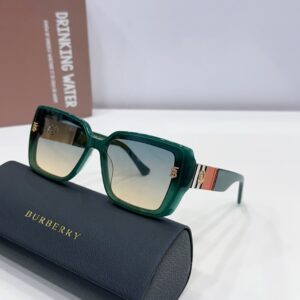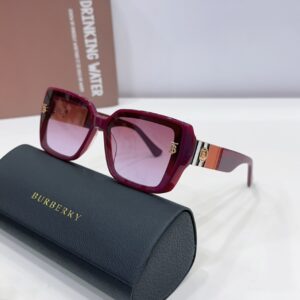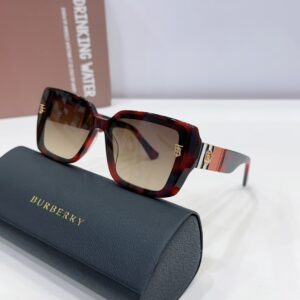Understanding Sustainable Sunglasses
Sustainable sunglasses are designed with an emphasis on minimizing environmental impact while promoting social responsibility. They are made from materials that are either renewable, recycled, or biodegradable. The choice of materials is crucial; for instance, bioplastics derived from natural resources such as corn or bamboo offer an eco-friendly alternative to conventional plastic. These materials not only reduce reliance on fossil fuels but also diminish plastic waste in landfills and oceans.
In addition to material selection, the manufacturing processes of sustainable sunglasses are also significant. Ethical production practices often include fair labor conditions and sustainable sourcing of resources. Many brands committed to sustainability ensure transparency in their supply chains, providing consumers with insight into the origins of their products. This commitment to ethical labor is vital, as it supports workers and communities while fostering a sense of responsibility among consumers. Choosing sunglasses that adhere to these ethical standards helps promote a more equitable industry.
The fashion industry has a profound impact on the environment, contributing to pollution and waste on a global scale. By opting for eco-friendly sunglasses, consumers can play a pivotal role in combating these issues. Sustainable eyewear brands are often mindful of their ecological footprint, implementing practices such as using recycled packaging and reducing carbon emissions during production. By prioritizing these factors, consumers not only contribute to a healthier planet but also encourage brands to adopt more sustainable practices.
In conclusion, when selecting sustainable sunglasses, it is essential to consider the materials used, the ethical implications of manufacturing practices, and the overall environmental impact of the fashion industry. By making informed choices, consumers can help drive the demand for more responsible products in the eyewear market, fostering a cycle of sustainability and ethical consumption.
The Rise of Sunglasses Dupes
In recent years, sunglasses dupes have emerged as a fashionable and budget-friendly alternative to luxury eyewear. These replicas, often closely resembling high-end designer sunglasses, provide consumers with an appealing option to maintain style without the hefty price tag. The rise of social media platforms and influencer marketing has played a significant role in popularizing these affordable alternatives, as fashion-conscious individuals showcase their trendy yet cost-effective eyewear choices. This trend highlights a growing desire among consumers to achieve the luxurious looks they admire without compromising their financial wellbeing.
The affordability of sunglasses dupes is, undoubtedly, one of their most appealing aspects. While high-end designer sunglasses can range from several hundred to several thousand dollars, dupes typically fall within a much lower price range, making them accessible to a broader audience. This accessibility allows consumers to experiment with various designs and styles without the fear of investing heavily in a single piece, leading to increased personalization of their fashion statements. Additionally, as sustainability becomes a growing concern, some brands offer eco-friendly dupes, reflecting an awareness of ethical production practices.
However, the proliferation of sunglasses dupes does spark a discussion about their sustainability and ethical implications. While purchasing replicas can be a budget-saver, it raises questions regarding the production methods and materials used in manufacturing these products. Often, dupes are produced in bulk, resulting in potential overconsumption and waste, as consumers may buy multiple pairs in a desire to stay current with fashion trends. It is essential for conscious consumers to weigh the benefits against the potential drawbacks, considering both the environmental impact and the ethical aspects of mass production in their purchasing decisions. The challenge lies in finding a balance between style, affordability, and sustainability in their choices.
Ethical Considerations When Purchasing Replicas
The rising popularity of replica sunglasses has sparked important dialogues about the ethical implications surrounding their purchase. As consumers become increasingly aware of the environmental and social ramifications of their choices, it is vital to examine various facets of this issue before deciding to procure replicas. One critical consideration is the impact of fast fashion, which is characterized by rapid production cycles and an overwhelming volume of low-cost items flooding the market. This industry often prioritizes profit over sustainability, resulting in significant waste and pollution.
Moreover, labor conditions in manufacturing countries remain a pressing ethical concern. Many brands engaging in replica creation outsource production to facilities where workers face poor working conditions and inadequate wages. As conscientious consumers, individuals must scrutinize the labor practices of the brands they choose to support. It is advisable to seek transparency regarding a company’s supply chain and understand whether they adhere to labor rights regulations. Questions about the welfare of employees, safety standards in factories, and fair compensation should guide consumers in their decision-making process.
Additionally, the environmental footprint of producing low-cost fashion items warrants careful examination. The manufacturing of replicas often involves the use of non-biodegradable materials and toxic chemicals, which can have detrimental effects on local ecosystems. As consumers, one can evaluate a brand’s environmental policies, whether they utilize recycled materials, or how they manage waste. Choosing to purchase sustainably made replicas or those that emphasize ethical production methods can mitigate these environmental concerns.
In light of these factors, it is essential for consumers to approach the purchase of replica sunglasses with a critical eye. By asking pertinent questions and prioritizing ethical brands, one can align their buying habits with their values, contributing to a more sustainable and just fashion ecosystem.
How to Choose Sustainable Sunglasses Dupes
Choosing sustainable sunglasses dupes requires a thoughtful approach to ensure that your selections align with your ethical values. To commence, it is crucial to evaluate the transparency of the brands you are considering. Brands that are open about their manufacturing processes and supply chains usually demonstrate a commitment to sustainability. Look for companies that provide detailed information about where their materials are sourced, how they are produced, and the impact of their operations on the environment.
Certifications also play a significant role in assessing the sustainability of sunglasses. Seek brands that possess certifications such as the Global Recycle Standard or those indicating eco-friendly practices. These certifications often reflect a brand’s commitment to reducing waste and using sustainable materials. Additionally, exploring customer reviews can offer critical insights into the performance and durability of the sunglasses, which are essential factors in their overall sustainability.
When researching materials, pay close attention to the types used in the sunglasses. Recycled plastics and bio-based materials are noteworthy substitutes for conventional plastics, which are often detrimental to the environment. Understanding product descriptions is equally important, as these details can reveal the sustainability attributes of the item. Look for phrases like “eco-friendly,” “recycled,” or “biodegradable” that indicate a conscious effort toward sustainable production.
Moreover, consider the brand’s overall ethos and mission. Brands that prioritize sustainability typically engage in environmentally friendly practices beyond just product offerings, such as being involved in community outreach and supporting conservation efforts. By carefully evaluating these factors, consumers can make informed and ethical choices when choosing sustainable sunglasses dupes that truly reflect their values.




